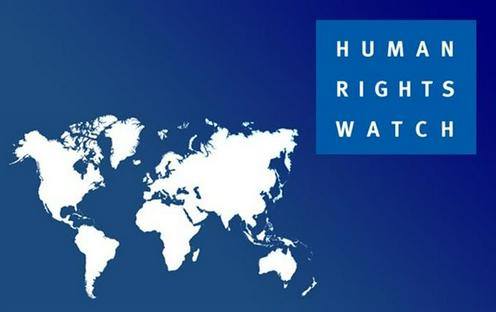Experts from Human Rights Watch (HRW) have concluded that all five post-Soviet republics in Central Asia intensified measures to suppress dissent and tighten control over freedom of expression in 2024. Governments imprisoned critics, activists, and journalists, according to a report published on the organization’s website.
Hugh Williamson, HRW’s Director for Europe and Central Asia, emphasized that authorities across the region engaged in increased intimidation and pressure against citizens critical of state policies.
“As more activists are imprisoned simply for exercising their right to free speech or engaging in peaceful opposition activities, it is vital to bring attention to their plight and demand their release,” Williamson stated.
The report highlights examples of human rights abuses in each country:
Kazakhstan: Courts sentenced journalist Duman Mukhammedkarim and opposition figure Asylbek Zhamuratov to seven years in prison on what HRW described as overly broad charges of extremism. Concerns were also raised over a new media law that HRW believes threatens press freedom.
Kyrgyzstan: A high-profile trial targeted journalists linked to the media project Temirov Live, known for exposing government corruption. Two of eleven defendants received up to six-year prison terms for «inciting mass unrest.» Additionally, a court shut down the fund managing the independent news outlet Kloop over alleged non-compliance with regulations.
Tajikistan: The report highlights cases against journalist Anora Sarkorova, who covered events in Gorno-Badakhshan, and Ahmad Ibrohim, editor of one of the country’s last independent newspapers, Payk. Several journalists were detained last year for publishing content critical of the government.
Turkmenistan: Authorities continue to restrict freedom of expression and tightly control access to information. Citizens face arbitrary travel bans and are frequently denied passports without explanation. The report also mentions the deportation of politically active Turkmen citizens with the help of foreign law enforcement.
Uzbekistan: Activists faced persecution on what HRW deemed baseless charges. For example, a court in Kashkadarya sentenced Dildora Khakimova and Nargiza Keldiyorova to six and six-and-a-half years in prison, respectively. Uzbekistan’s Supreme Court also dismissed an appeal by journalist Dauletmurat Tazhimuratov, serving a lengthy sentence for his involvement in the “Nukus unrest.”
HRW urged the governments of Kazakhstan, Kyrgyzstan, Tajikistan, Turkmenistan, and Uzbekistan to release activists unjustly detained and ensure freedom of expression in their countries.
The findings are part of HRW’s 35th annual World Report, which assesses human rights conditions in over 100 countries. Executive Director Tirana Hassan noted that many governments worldwide suppressed dissent and unjustly detained political opponents, activists, and journalists last year.










